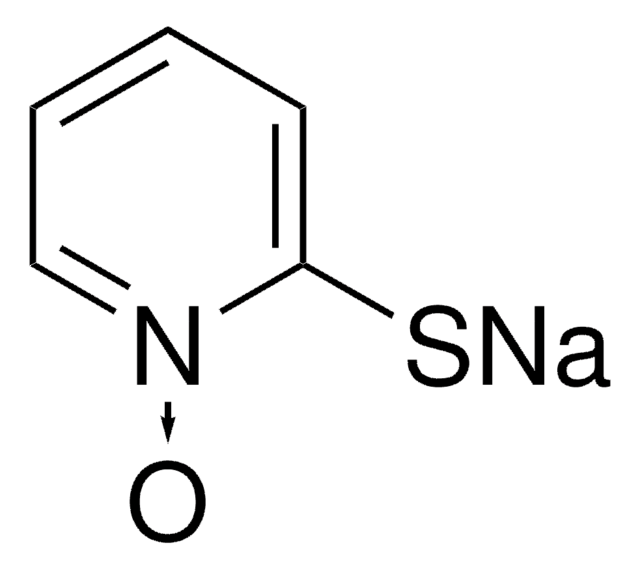T8904
Thiabendazole
≥99%, powder
Sinónimos:
2-(4-Thiazolyl)benzimidazole
About This Item
Productos recomendados
assay
≥99%
form
powder
color
white to off-white
solubility
DMF: soluble 50 mg/mL
antibiotic activity spectrum
fungi
parasites
mode of action
enzyme | inhibits
SMILES string
c1ccc2[nH]c(nc2c1)-c3cscn3
InChI
1S/C10H7N3S/c1-2-4-8-7(3-1)12-10(13-8)9-5-14-6-11-9/h1-6H,(H,12,13)
InChI key
WJCNZQLZVWNLKY-UHFFFAOYSA-N
Gene Information
human ... CYP2C9(1559)
¿Está buscando productos similares? Visita Guía de comparación de productos
Categorías relacionadas
General description
Application
Biochem/physiol Actions
Other Notes
signalword
Warning
hcodes
pcodes
Hazard Classifications
Aquatic Acute 1 - Aquatic Chronic 1
Storage Class
11 - Combustible Solids
wgk_germany
WGK 2
flash_point_f
Not applicable
flash_point_c
Not applicable
ppe
Eyeshields, Gloves
Certificados de análisis (COA)
Busque Certificados de análisis (COA) introduciendo el número de lote del producto. Los números de lote se encuentran en la etiqueta del producto después de las palabras «Lot» o «Batch»
¿Ya tiene este producto?
Encuentre la documentación para los productos que ha comprado recientemente en la Biblioteca de documentos.
Los clientes también vieron
Nuestro equipo de científicos tiene experiencia en todas las áreas de investigación: Ciencias de la vida, Ciencia de los materiales, Síntesis química, Cromatografía, Analítica y muchas otras.
Póngase en contacto con el Servicio técnico









